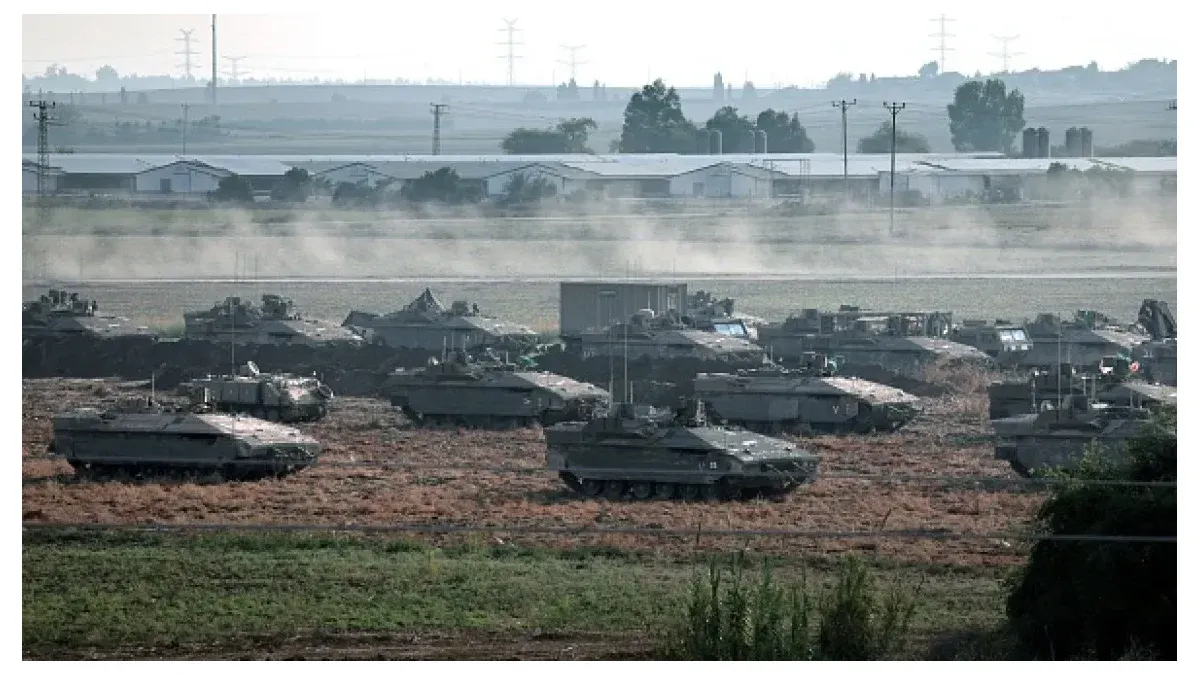hamas – gaza.jpg
A Palestinian injured in Israeli attacks is transferred to Nasser hospital
NA
The ministry also noted that there were “dozens” of dead throughout the territoryincluding in Gaza City and the Jabaliyia refugee camp, in the north of the enclave, as well as in the Nuseirat and Maghazi camps, in the center.
The response of the Israeli army
The Israeli army, for its part, reported launches of rockets from Gaza towards Israel. Israel has been bombing the small enclave since October 7, in response to the attack carried out by Hamas against its territory, in which Islamist militants killed 1,200 people, mostly civilians, and kidnapped some 240 people, according to Israeli authorities.
In parallel to the bombings, Israel, which promised to “annihilate” Hamashas been carrying out ground operations in the enclave since October 27.
According to Hamas, classified as a terrorist group by the European Union, Israel and the United States, about 18,000 people died in Gaza since the start of the war, mostly civilians.
The request of the Minister of Israel, Benjamin Netanyahu
Israeli Prime Minister Benjamin Netanyahu asked this Sunday to Hamas fighters who lay down their weaponsand stated that many surrenders had been recorded in recent days.
“The war continues, but it is the beginning of the end for Hamas”, declared the nationalist leader, quoted in a statement. His national security advisor stated that army had killed about 7,000 militiamen during the fighting, which is currently centered in the south of the territory.
The army announced on Monday that 101 Israeli soldiers had been killed since the start of the ground offensive. Israel affirms that still There are some 137 hostages held in Gaza. A seven-day truce that came into effect on November 24 allowed dozens of hostages to be exchanged for hundreds of Palestinian prisoners.
However, Hamas declared on sunday none of those still held will leave Gaza “alive” “without an exchange and a negotiation, and without meeting the demands” of the Islamist movement.
Tastemain mediator between the two parties, assured that efforts for a new truce and more hostage releases continuedbut that Israeli bombings were “reducing” the possibilities.
What the UN says about this conflict between Israel – Palestine
The UN General Assembly HE will gather on Tuesday to talk about the situation in Gazaafter the United States vetoed a resolution for a new ceasefire on Friday.
The meeting could conclude with a written statement, diplomatic sources indicated. The draft text, to which AFP had access on Sunday, largely takes up the resolution to call for a new truce, vetoed on Friday in the Security Council.
He UN Secretary General, Antonio Guterres, warned that “the situation is rapidly evolving towards a catastrophe” which could have “irreversible consequences for the Palestinians” and for the region.
The Jhead of US diplomacyAntony Blinken, once again rejected a ceasefire. “With Hamas still alive, still intact and … with the stated intention of repeating October 7 over and over again, it would simply perpetuate the problem,” he told ABC News on Sunday. The American politician noted, however, that Washington was “very, very aware of the terrible human cost” of the conflict.
The displacement of Gazans by Hamas
Nearly 1.9 million of Gaza’s 2.4 million inhabitants have been displacedalmost a million of them children, according to the UN children’s agency.
Israel had ordered civilians to take refuge in the south of the territory, but the army attacks targets throughout the Strip. Thousands of civilians They crowd in the south, near the border of Egyptwhich is closed, and they are forced to move several times as the fighting spreads.
“We move from one area to another, and there is no safe place,” Abu Mohamed lamented to AFP, on the way to Rafah, which has become a large camp.
The destruction of infrastructure due to bombings
The bombings have left fields of ruins and damaged health infrastructure in the Strip. According to the UN Office for the Coordination of Humanitarian Affairs (OCHA), only 14 of Gaza’s 36 hospitals are operating normally.
He health system is “on its knees and collapsing”, warned the director of the World Health Organization (WHO), Tedros Adhanom Ghebreyesus. The war has also increased fear that the conflict will spread to other countries in the region.
In Syria, Israeli aircraft bombed “sites of Hezbollah”, the Lebanese Shiite movement, in the suburbs of Damascus at night, according to the Syrian Observatory for Human Rights (OSDH). At least four people, including two fighters from Hamas ally Hezbollah, were killed in these attacks, according to the UK-based NGO.
Source: Ambito




